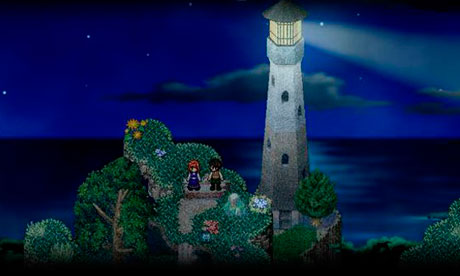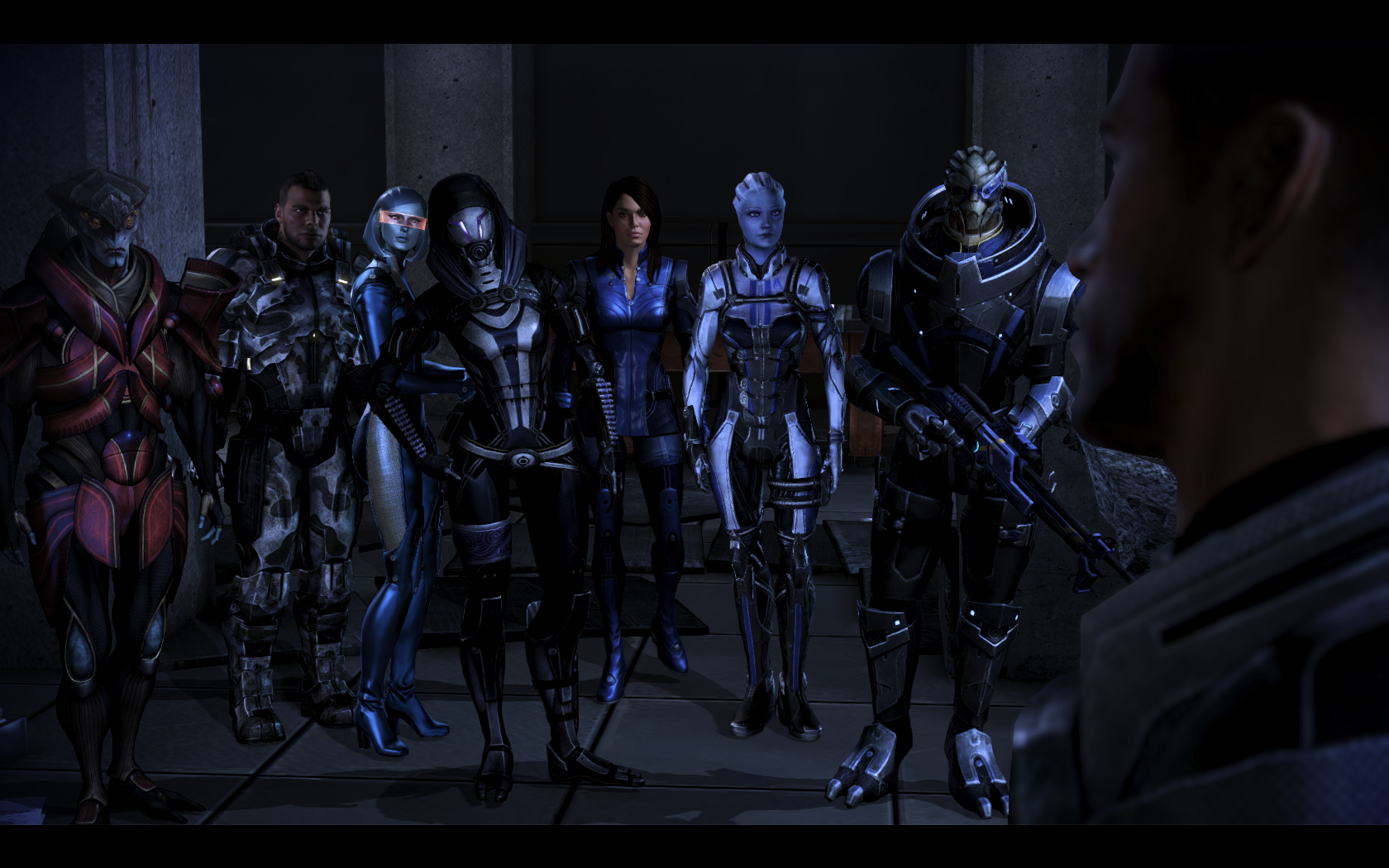A brief history on video game stories, and how things have changed today...
Recently I got the chance to play To the Moon thanks to Steam's big indie game sale. The game is about two scientists who try to alter a dying man's memory so that he may experience his life-long wish in dream form before he dies. Of course, this specific man's wish is to go to the moon. As you play through the game, you discover the origins of this man's wish, how he became the person he is, and the events that caused massive disarray in his life. It's a beautifully-written narrative told in a 32-bit graphic style, and it's packed with pretty much every emotion you can think of.
Yet there are people out there who look at To the Moon and scoff at it. It's not a real game, they say. The only good thing about it is its story and that's no fun, they say. But in a world where the word "game" has been stretched to encompass everything from chess to Call of Duty, it's harder and harder to make the case that To the Moon isn't a game. And perhaps the more important question is, why does it matter?
So this is what I want to talk about today. This is a blog about stories. In video games. And this is how I feel about them.

To the Moon&#Array;s story is unlike any other.
Stories have been found in video games since the early days of the medium. Most of us still remember the first time Mario had to go save the Princess, only to find that she's in another castle. We remember Mega Man's first adventure to hunt down the evil Dr. Wily. Even Pac-Man and Space Invaders had stories, even though they arguably didn't really need one. Today, every video game out there has some sort of story, whether we like it or not. Mario still has largely the same plotline – he's still going out there to save a princess. Kingdom Hearts has a ridiculous plotline to the point where I've given up on the series after its third installment.
There are times when we absolutely detest video game stories. Some games include a story just for the sake of having a story like Call of Duty: Modern Warfare 2, a game with a notoriously sh*tty single-player campaign likely due to the franchise's shift to multiplayer. Some games have a story to tell, but it's done is such a ridiculously convoluted fashion that it just ends up becoming a joke like the aforementioned Kingdom Hearts series and other franchises like Final Fantasy and Star Ocean.
(A strange coincidence that the last few franchises were all Square's, huh? I think Square Enix is actively trying to destroy our minds with terrible plotlines that make no goddamn sense.)

Some characters just feel a bit TOO artificial...
But if done well, stories in video games can surpass all other storytelling mediums out there. And that includes television and movies. Part of the reason is that you grow attached to your character to the point where you feel like you are that character. Early Square games do just that. Secret of Mana wasn't a story about a boy or a girl; it was a story about you. During Aerith's death in Final Fantasy VII, Cloud wasn't losing a close friend of his; you were losing a close friend of yours. Even games today are like this; Mass Effect wasn't about just any Commander Shepard, but Commander <insert your name here> Shepard.
We've come to a point in which stories have become an integral part in games, so much so that many games now put story above gameplay. Most people don't play Mass Effect because you get to shoot people (and with so many alternative choices out there, why would you?); people play Mass Effect for its story, its wonderful universe, and its lovable (and hate-able) characters. It shouldn't be a surprise to all of us that we have games now that focus solely on story.

In the end, we play games for people like these.
And thus we have come to a full circle. Games like To the Moon will always have its critics, those who don't believe that such a product that only focuses on story can qualify as a game. But those who say that will miss out on the things that make video games so unique. They allow us to experience a story and a universe in ways that only video games can offer. Games like To the Moon are merely another way of accomplishing this task.
Video game stories are unique. They immerse us in ways we never through possible. They give us a chance to live a story we've never heard. They enchant us with their engaging narrative and storytelling. They are the best types of stories. They are the stories with buttons.
So tell me, MyIGNers. Do you like games that focus solely on story? Which video game has the best storyline? What do you think the future holds for storytelling video games? Speak your thoughts in the comment section below!
![Amazing Spider-Man Finale Features New [SPOILER] Costume](../../../../../../assets1.ignimgs.com/2018/06/01/untitled-br-1527892808294_small.jpg)